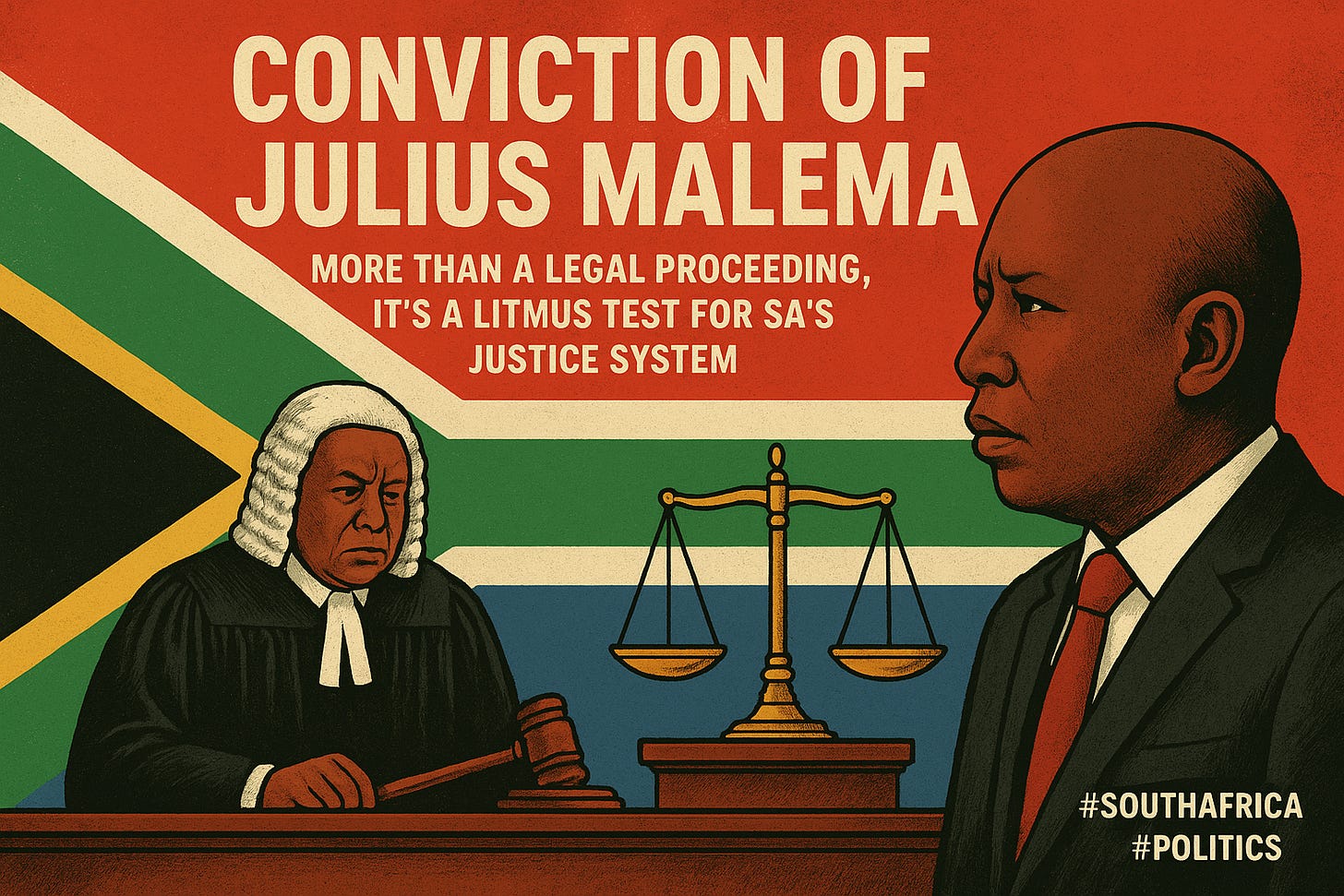Julius Malema’s Conviction: A Litmus Test for South African Justice
The recent conviction of Julius Malema, the fiery leader of the Economic Freedom Fighters (EFF), has reignited debates about power, justice, and impartiality in South Africa.
The recent conviction of Julius Malema, the fiery leader of the Economic Freedom Fighters (EFF), has reignited debates about power, justice, and impartiality in South Africa. While the charge — firing a gun in public — may seem straightforward, the broader narrative emerging from the country’s media suggests something deeper: a test of South Africa’s justice system itself.
Across multiple outlets, from Sowetan Live to The Daily Maverick and The Citizen, one theme stands out — Malema’s case has become a mirror reflecting the uneasy relationship between political power and judicial neutrality.
Sowetan Live frames the issue most sharply in its piece, “Why Malema’s pre-sentencing process is a critical test for neutrality in our criminal justice system.” It argues that the court’s handling of Malema’s case will reveal whether South Africa’s institutions can rise above political bias or remain entangled in partisan perceptions. For a figure as polarizing as Malema, neutrality is both demanded and doubted in equal measure.
In “Julius Malema’s firearm verdict and the EFF’s fork in the road,” The Daily Maverick argues that the ruling forces a strategic moment for both Malema and his party — a crossroads that may determine not only how the EFF navigates its public identity, but how it conducts its opposition politics going forward. In this telling, the courtroom outcome is inextricably bound to questions of legitimacy, internal coherence, and political branding. It’s not just a legal verdict; it’s a political inflection point — a case whose consequences ripple through the EFF’s future direction as much as through public faith in the judicial process.
The Citizen frames the fallout from Malema’s conviction less as a singular legal moment and more as a pivotal moment for the EFF’s very survival. In “I believe he will not survive this: EFF future on knife edge after Malema guilty verdict,” the article quotes political analysts warning that a jail sentence could spell the end of Malema’s political career — and by extension, could destabilize his party. The coverage underscores that the stakes are no longer just about guilt or innocence: they concern legacy, organizational identity, and political continuity. Whether one regards him as a disruptive force or a target of establishment politics, the message is clear — Malema’s fate may decisively shape the future direction of South African opposition politics.
Collectively, these perspectives paint a portrait of a nation at a crossroads. The Malema saga is no longer just a question of individual accountability; it now encompasses the fate of a political movement, the EFF, and the broader implications for opposition politics in South Africa. The case draws a clear divide between those who see the conviction as justice upheld and those who perceive it as politically selective, forcing the nation to grapple with difficult questions about judicial impartiality, political legitimacy, and the fragile balance between law and power — debates that resonate far beyond the courtroom and shape the trajectory of South Africa’s democracy.
Though the coverage remains largely domestic, the implications are universal. Around the world, democracies wrestle with the same tension between political influence and judicial independence. In that sense, Malema’s trial is not just a South African story — it’s a global parable about power, accountability, and the fragile balance between them.


